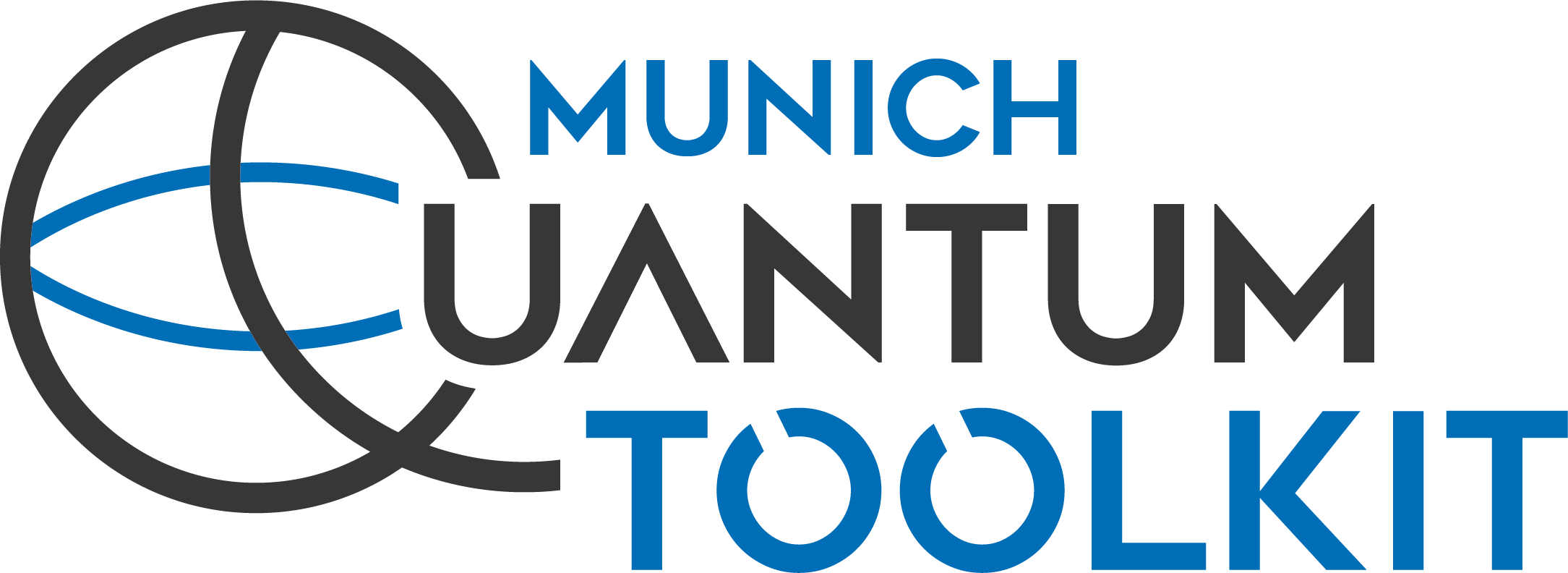
A tool for the compilation of arbitrary d-dimensional single qudit unitaries into error-efficient sequences of two-level operations by Chair for Design Automation.
If you have any questions, feel free to contact us via quantum.cda@xcit.tum.de or by creating an issue on GitHub.
The compiler demands only for the resolution of dependencies, to solve run in terminal.
pip install -r requirements.txt
In order to proceed just import the main class 'QuantumCircuit' in the QuantumCircuit folder.
The following code gives an example on the usage:
from src.architecture_graph.level_Graph import level_Graph
from src.evaluation.Pauli import H
from src.circuit.QuantumCircuit import QuantumCircuit
dimension = 3 # select dimension of your single qudit .
# declare the edges on the energy level graph between logic states .
edges = [
(1, 0, {"delta_m": 0, "sensitivity": 3}),
(0, 2, {"delta_m": 0, "sensitivity": 3}),
]
# name explicitly the logic states .
nodes = [0, 1, 2]
# declare physical levels in order of maping of the logic states just declared .
# i.e. here we will have Logic 0 -> Phys. 0, have Logic 1 -> Phys. 1, have Logic 2 -> Phys. 2 .
nmap = [0, 1, 2]
# Construct the qudit energy level graph, the last field is the list of logic state that are used for the calibrations of the operations.
# note: only the first is one counts in our current cost fucntion.
graph = level_Graph(edges, nodes, nmap, [1])
# Construct quantum circuit with 1 qudit, 0 classical bit, dimension of the qudit, graph of the qudit, flag for compile with verification .
QC = QuantumCircuit(1, 0, dimension, graph, verify = True)
# add custom gate to qudit 0, the matrix field is a nump array .
QC.custom_unitary(0, H(dimension).matrix)
# Visualize initial circuit .
QC.draw()
# Compile .
QC.DFS_decompose()
# alternative : QR_decompose()
# Propagate Z gates backwards .
QC.Z_prop(back = True)
# Visualize the results
QC.draw()
# Save the results to json .
path = "./"
QC.to_json(path)
# NOTE: for customizing the cost functions access file ./src/utils/cost_functions.pyThe implementation is compatible with a minimimum version of Python 3.8.
Building (and running) is continuously tested under Linux, macOS, and Windows using the latest available system versions for GitHub Actions.
K. Mato, M. Ringbauer, S. Hillmich and R. Wille, "Adaptive Compilation of Multi-Level Quantum Operations," 2022 IEEE International Conference on Quantum Computing and Engineering (QCE), Broomfield, CO, USA, 2022, pp. 484-491, doi: 10.1109/QCE53715.2022.00070.
